While Apple may still be the biggest selling smartphone brand in the world, the best Android smartphones are well worth your consideration. This is especially true if you aren’t already tied into Apple’s ecosystem. While iPhones tend to come in a relatively narrow range of sizes and specifications, there are Android devices to suit almost any preference in terms of size, style, and budget.
Crucially, many Android devices are among the best smartphones around – so you can be confident that if you’re thinking of buying one of these handsets, you’ll be getting a capable and versatile phone. Whether you want the best flagship phone, a great camera, or a more affordable option that still gives you a great user experience, there’s an Android smartphone for just about everyone.
Android Explained
Android is the name given to the mobile operating system created and owned by Google. Whereas iOS – Apple's operating system – is reserved exclusively for iPhones, Android is the system used by almost every other phone that isn’t made by Apple. Famous Android smartphone manufacturers include Google, Samsung, and Sony, alongside many others.
While plenty of manufacturers like to use Android, many of them will then overlay the 'stock' version of the software and put their own spin on it. This might include tweaks to the look of the icons, or the way you navigate the system, for example. But fundamentally, any device using Android runs the same core system.
Best Android smartphones of 2024 at a glance:
• Best overall: Samsung Galaxy S24 Ultra – View at Amazon
• Best value: Google Pixel 8a – View at Amazon
• Best for gaming: ASUS ROG Phone 8 Pro – View at Amazon
The huge variety of Android smartphones available can make knowing what to choose a little daunting. Factors which may influence your decision include price, design and features, among others. Whether you want a budget smartphone with a great camera, or you’re looking for an ultra-premium flagship, there's plenty to choose from.
Best Android smartphones of 2025
All prices are correct at the time of writing. Prices, stock and deals are subject to change without notice.
Best overall
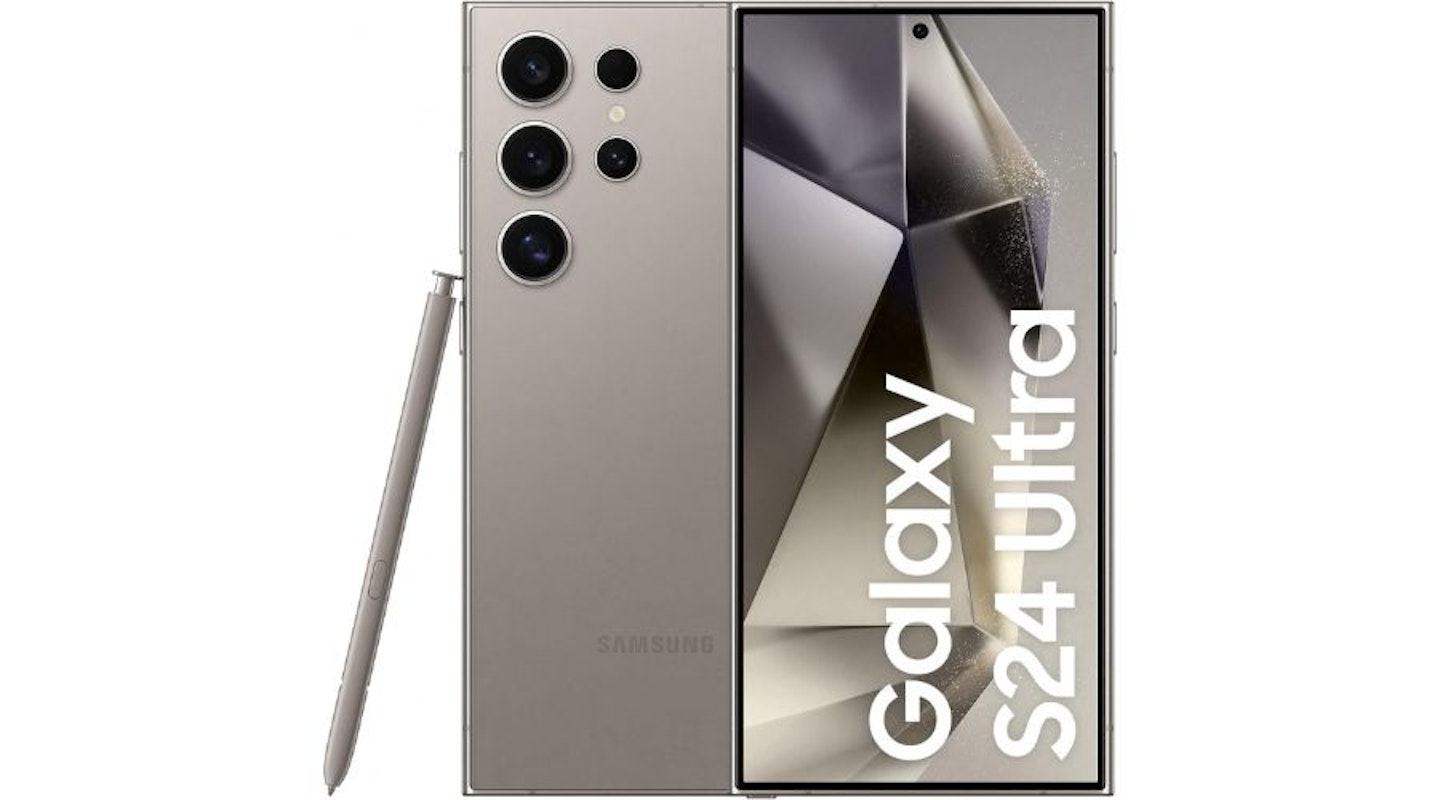 Samsung
SamsungThe Samsung Galaxy S24 Ultra is the best phone Samsung has ever made. It builds on the already excellent S23 Ultra, and improves it in several ways: a faster processor, a new display, and an improved rear camera array.
The S24 Ultra is a big phone that few people will manage to use one-handed. Its 6.8-inch display is now flat, rather than the curved screen of its predecessor, while the titanium case has helped to reduce its weight slightly. The QLED display is incredibly bright, while the 120Hz refresh rate means browsing, gaming and watching content is an ultra-smooth experience.
The phone uses a powerful Snapdragon 8 Gen 3 chip, and the 12GB of RAM means this is a blisteringly fast phone for intensive uses, such as gaming. These specs also support all the AI tools Samsung has installed on the S24 Ultra, including image processing. And the camera itself is nothing short of spectacular. The 200MP main shooter is accompanied by a new 50MP zoom periscope camera, which improves the telephoto capabilities of the device.
There’s little not to be impressed by with the S24 Ultra. And while the price tag might be a little eye-watering, the camera, the processor, and all the software combine to make this the best Android smartphone you can currently buy.
Pros
- A brilliantly large and vibrant screen brings your photos and videos to life
- The stunning 200MP wide camera plus telephoto lens gives you lots of options for your photos
- The Snapdragon processor is perfect for mobile gaming performance
Cons
- Those who like to travel light may find it a little large at 6.8 inches
| Cameras: | 200MP (wide), 50MP (periscope telephoto), 10MP (telephoto), 12MP (ultrawide), 12MP (front) |
| Display: | 6.8-inch, 3120 x 1440 pixels |
| Processor: | Snapdragon 8 Gen 3 |
| RAM: | 12GB |
| Storage: | 256GB / 512GB / 1TB |
| Battery life: | 5000mAh |
| Dimensions: | 162.3 x 79.0 x 8.6mm |
| Weight: | 232 g |
Best value
One of the benefits of owning a Google handset is that it gives you access to the purest version of Android available. That means less bloatware, and a snappy and responsive operating system. You also get up to seven years of software updates.
The Pixel 8a is the latest in the Pixel line-up, and the most budget-friendly of the current generation of Pixel phones. Its RRP of £499 is a full £200 less than the standard Pixel 8 (RRP £699), but the two devices have lots in common. Pound for pound, the 8a is excellent value.
The Pixel 8a has a relatively small 6.1-inch display and may be preferable for those who prefer smaller handsets. Internally, the Pixel 8a shares the same Tensor G3 processor that’s found in both the Pixel 8 and the Pixel 8 Pro and has a generous 8GB of RAM. You’re getting a flagship processor in a cheaper package, and Google’s software helps to make this device stand out, with features such as Circle to Search, Call Screening, and superb photo processing features.
While the camera specs aren’t quite as eye-catching as its more expensive siblings, the software is so good that it compensates for plenty. With features such as Magic Editor, Best Take, and Audio Magic Eraser, which removes background noise from your videos, you can be confident that the Pixel 8a will help you capture some wonderful images.
Pros
- Seven years of security and software updates
- Same Tensor chipset as the Pixel 8 Pro
- Superb camera for the price
Cons
- Battery life could be better
| Cameras: | 64MP (main), 13MP (ultrawide), 13MP front) |
| Display: | 6.1-inch, 1080 x 2400 OLED |
| Processor: | Google Tensor G3, Titan M2 security coprocessor |
| RAM: | 8GB |
| Storage: | 128GB / 256GB |
| Battery: | 4492mAh |
| Dimensions: | 152.1 x 72.7 x 8.9mm |
| Weight: | 188g |
Best for gaming
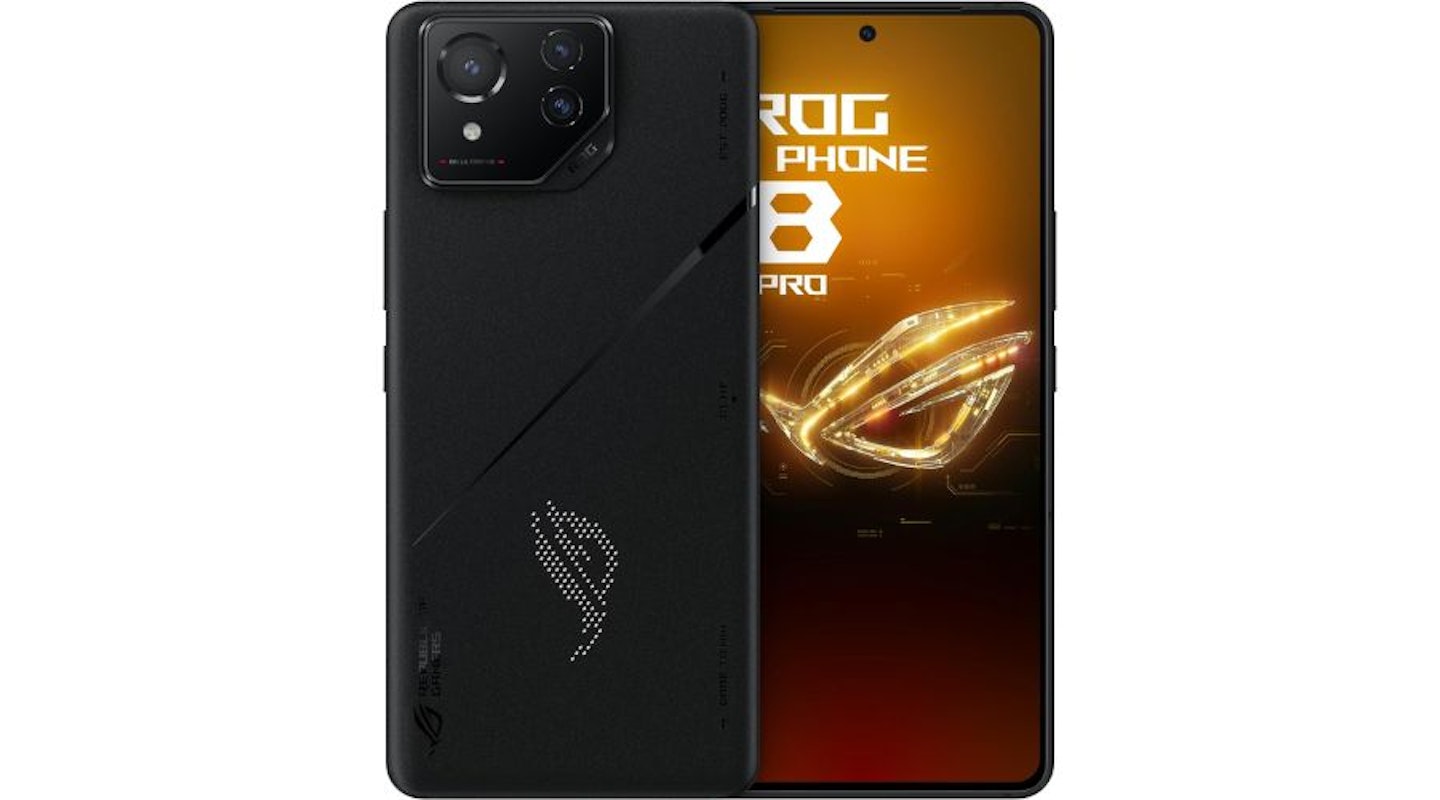 ASUS
ASUSThe ASUS ROG Phone 8 Pro is expensive, with an RRP of £1099.99. And while it isn’t as polished as the likes of the Samsung Galaxy S24 Ultra or the Pixel 8 Pro, when it comes to gaming, it’s tough to look past.
It has the same Snapdragon 8 Gen 3 chip as Samsung’s flagship device, but it also has up to 24GB of RAM (and up to 1TB of storage) making it one of the most powerful Android smartphones available.
The huge 6.78-inch AMOLED screen has an adaptive refresh rate of between 1-120Hz, and a 165Hz fixed refresh rate for maximum smoothness on supported games. The 5,500 mAh battery holds its charge better than most flagship devices, while the built-in cooling system helps prevent it from overheating when in use.
Crucially, it’s also a very respectable phone in its own right, with a decent camera and an advanced optical image stabilisation system to help keep things steady. It does everything you’d expect a phone to do – but it’s for gaming where this really shines.
Pros
- One of the most powerful phones ever made from a leading brand in gaming tech
- More RAM than the vast majority of smartphones means this is ready for anything
- The screen runs at up to 165hz for accurate and detailed framerates
Cons
- Only two years of software updates
| Cameras | 50MP (main), 13MP (ultrawide), 32MP telephoto, 32MP (front) |
| Display | 6.78-inch, 2400 x 1080 pixels |
| Processor | Snapdragon 8 Gen 3 |
| RAM | 12GB / 16GB / 24GB |
| Storage | 256GB / 512GB / 1TB |
| Battery | 5500mAh |
| Dimensions | 163.8 x 76.8 x 8.9 mm |
| Weight | 225 g |
Best foldable
Foldable phones have come a long way in a relatively short space of time, and Google latest offering – the Pixel 9 Pro Fold – is our current pick of the bunch. Finally, there's a folding phone that looks like a normal phone when folded (trust us, that's been rare up until now).
But it isn't just because Google seems to have finally cracked the design that this is our top pick. It's got many of the same specs as the standard Pixel 9 Pro and Pixel 9 Pro XL, including the Tensor G4 chip and 16GB of RAM. It also runs Google's pure version of Android, so if you like Android, but don't love the bloatware often found on other handsets, that's a big tick. The outside screen is a 6.3-inch 120Hz OLED display, while the inside screen is a gorgeous 8-inch 120Hz OLED.
There are three cameras on the back, plus one selfie camera on the front, and one on the inside screen. The main camera is 48MP, while a 10.5MP ultrawide and a 10.8MP telephoto lens with 5x zoom are about as good as – if not better than - you'll find on any foldable (although not quite as good as the cameras on the best conventional phones). It also benefits from the myriad AI supported features that make the Pixel 9 Pro range so strong as a camera package. This includes features such as the Add Me feature, and the Made You Look tool, which helps to keep children looking in the right place while you take a photo.
Of course, none of this comes cheap, and the RRP of £1749 is a full £750 more expensive than the regular Pixel 9 Pro. But if you want the best foldable phone, this is the current leader.
Pros
- Huge screen
- Looks like a normal phone when closed
- Excellent features help deliver great photos
Cons
- Cameras aren't as good as the standard Pixel 9 Pro and Pixel 9 Pro XL
| Cameras: | 48MP main, 10.8MP 5X zoom, 10.5MP ultrawide, 10MP selfie |
| Display: | 8-inches, 1080x 2424 pixels (internal), 6.3-inches, 2076 x 2152 pixels (external) |
| Processor: | Google Tensor G4 |
| RAM: | 16GB |
| Storage: | 256/512GB |
| Battery: | 4,650mAh |
| Dimensions: | 155.2 x 150.2 x 5.1mm (open); 155.2 x 77.1 x 10.5mm (closed) |
| Weight: | 257 grams |
5.
OnePlus 12
Best alternative premium Android smartphone
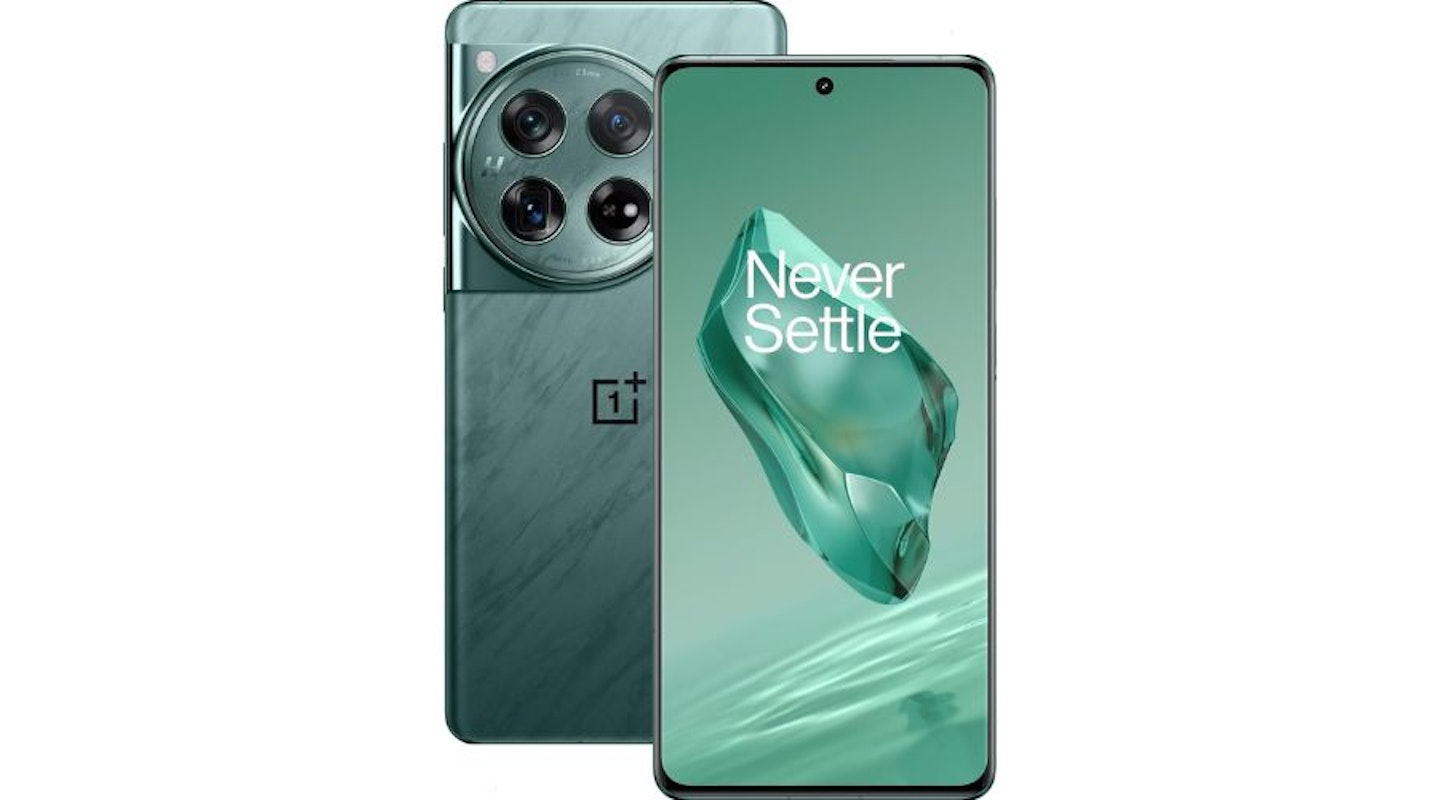 OnePlus
OnePlusOnePlus used to be renowned for delivering flagship phones at mid-range prices. While the £999 RRP for the OnePlus 12 is hardly mid-range, it’s still a phone that offers exceptional all-round quality, and will appeal to people who want an alternative to the AI-focused devices from the likes of Samsung and Google.
The OnePlus 12 shares the Snapdragon 8 Gen 3 chip used in the S24 Ultra, offers 12GB or 16GB of Ram, and 256GB or 512GB of storage. The 6.82-inch OLED display is clear and smooth thanks to the 120Hz refresh rate. It sticks with the OxygenOS operating system that OnePlus has used for years. This is a clean and user-friendly version of Android, that some people may prefer to the stock Android found on Pixel devices. It also has a huge battery that promises to last even under heavy usage, and OnePlus’s hugely impressive fast-charging capabilities.
The camera is made in collaboration with Hasselblad. It takes a little more work to deliver great photos than some other devices, but it does deliver some fantastic images, especially for portraits and selfies.
While it’s a great phone, it isn’t water resistant like many handsets, and software support is more limited than on some other flagship devices. But it’s excellent value for a strong all-rounder.
Pros
- Excels at portrait photography
- Fast charging is impressive
- Great value for money
Cons
- Splashproof rather than waterproof
- Shorter period of software support than rivals
| Cameras | 50MP (wide), 48MP (ultrawide), 64MP (telephoto), 32MP (front) |
| Display | 6.82-inch, 1440 x 3168 pixels OLED |
| Processor | Qualcomm Snapdragon 8 Gen 3 |
| RAM | 12GB / 16GB |
| Storage | 256GB / 512GB |
| Battery | 5,400mAh |
| Dimensions | 164.3 x 75.8 x 9.2 mm |
| Weight | 220 g |
Best Google Android smartphone
If you want the purest Android smartphone experience possible, you’ll need a Google handset that uses stock Android. And the best Google handset right now is the Pixel 9 Pro, Google’s current flagship device. It actually comes in two sizes, the 6.3-inch Pixel 9 Pro, or a 6.8-inch XL version.
The XL version has slightly higher screen resolution, and a larger battery. But for us, the smaller handset gets the nod because it has all the critical features of the larger variant, but it's cheaper and fits in your pocket more easily.
The Pixel 9 Pro has a custom-built Tensor G4 chipset and 16GB of RAM, which allows it to support all the software features that Google has crammed in. This includes voice transcription, language translation, call screening, AI wallpaper, and an outstanding range of photo editing tools that make the Pixel Pro one of the very best camera phones on the market.
Notable features here include the Magic Editor tool, which means you can perfect any blemishes on the images you capture with the already impressive 50MP main camera. There are loads of Gemini-AI related features on offer, too. These include image generation, a new Reimagine tool, that lets you add new features to your photos, and the Add Me camera tool, which is a genuine game-changer for whoever misses out on being in all the group photos because they're behind the camera.
The 6.3-inch screen is sharp and bright (one of the best around, in fact), and Google’s built-in power management tools mean the battery lasts longer than you might expect. And like the Pixel 8a, this phone also enjoys up to seven years of software updates. It’s a great phone, built to last.
Pros
- Camera is excellent
- Seven years of software updates
- AI adds useful features to the camera
Cons
- Tensor chip performance is worse than rival chipsets
| Cameras | 50P (main), 48MP 5x zoom (telephoto), 48MP (ultrawide), 42MP (selfie) |
| Display | 6.3-inch, 1280 x 2856 pixels |
| Processor | Google Tensor G4 |
| RAM | 16GB |
| Storage | 128GB, 256GB, 512GB, 1TB |
| Battery | 4,700mAh |
| Dimensions | 152.8 x 72 x 8.5mm |
| Weight | 199 grams |
Best Android camera phone
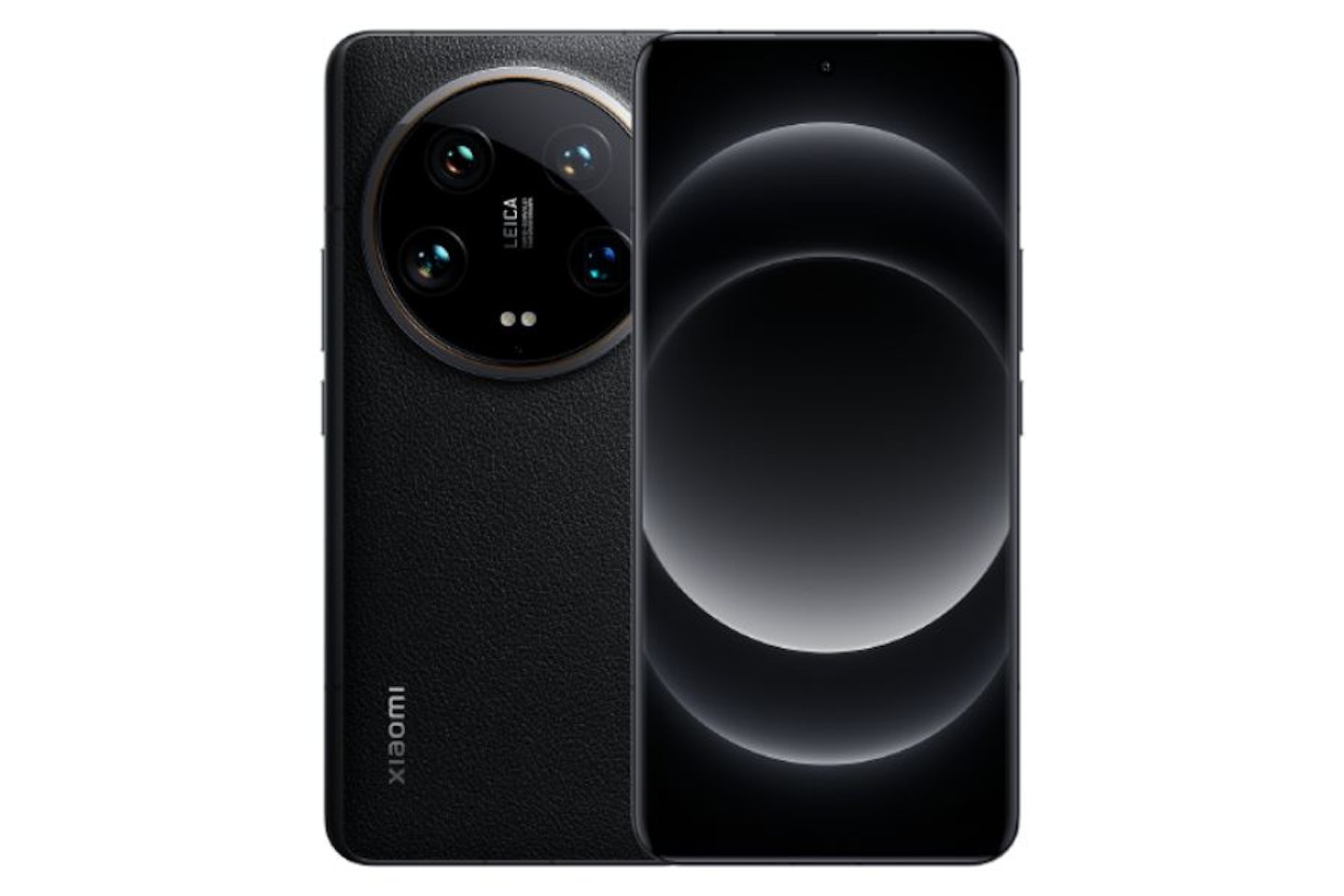 Xiaomi
XiaomiThe Xiaomi 14 Ultra is one of the best camera phones currently available. So good, in fact, we think it's better than the cameras offered by many of the "big beasts".
A variable aperture paired with a 1-inch Leica sensor means this phone can deliver exceptional images in almost any conditions, including low light. The camera array is similarly impressive, featuring four lenses with six different focal lengths that vary from 12mm to 240mm. The lenses all benefit from a 50MP image sensor, meaning that whether you're up close, or zooming in from a distance, you'll still get impressive results.
There are plenty of extras to help, too. A 120mm periscope lens is great for zooming in, while a Master Portrait mode and street photography mode help when you want to create a specific vibe in your image. There's even a professional photography kit for the phone, which effectively turns it into a compact camera. The RRP of £179 it adds an extra cost to an already expensive handset. But it does have a 1500mAh battery built-in, to keep the camera rolling when you're out all day.
The camera is undoubtedly magnificent. And the Xiaomi 14 Ultra excels in other aspects, too. The gorgeous 6.72-inch,120Hz AMOLED display is ultra-smooth, and 16GB of RAM makes this quick enough to handle even the most demanding of tasks. This is supported by Snapdragon's 8 Gen 3 processor, and a Qualcomm Adreno GPU helps give graphics processing a boost.
If you want the best camera phone currently available – this is it. But it's a powerful flagship in lots of other ways as well.
Pros
- Exceptional camera
- Fast performance
- Beautiful display
Cons
- Photography kit is expensive in its own right
- Size makes it difficult to use one-handed
| Camera | 50MP (main), 50MP (ultrawide), 50MP (telephoto), 50MP, (periscope), 32MP (front) |
| Display | 6.73-inch, 3200 x 1440 AMOLED |
| Processor | Qualcomm Snapdragon 8 Gen 3 |
| RAM | 16GB |
| Storage | 512GB |
| Battery | 5,000mAh |
| Dimensions | 161.4 x 75.3 x 9.2 mm |
| Weight | 224 grams |
Best under £300
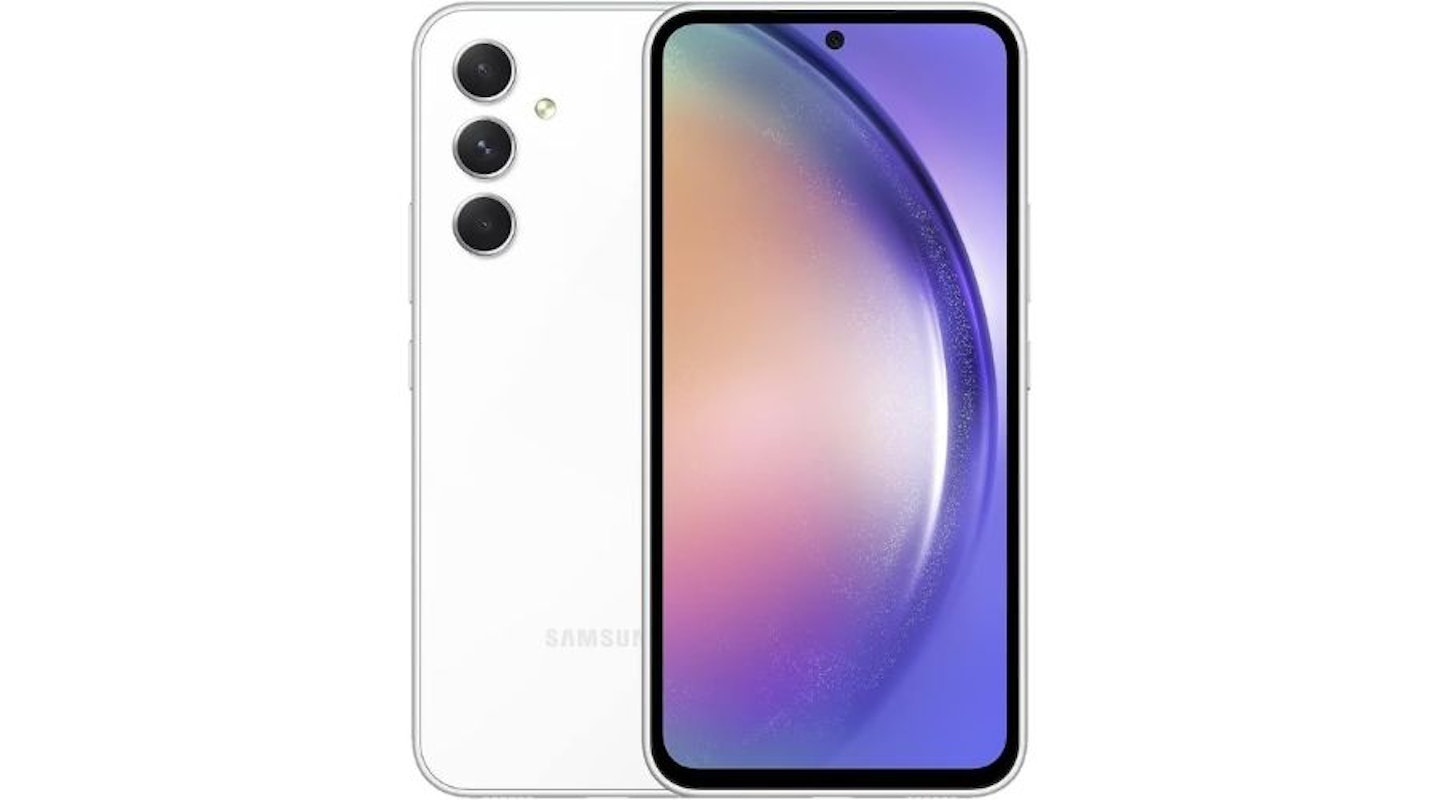 Samsung
SamsungHaving been around since 2023, the Samsung Galaxy A54 has dropped in price. With an original RRP of £449, it’s now routinely available for less than £300, making this an excellent mid-range smartphone, at a budget price.
It borrows from the Galaxy S23 in terms of its design, and the 6.4-inch AMOLED display has the same 120Hz refresh rate of many more expensive devices. It uses a Samsung Exynos 1380 chipset, which isn’t quite as snappy as some others, but for most people, will still be fine for everyday use. There’s also a sizeable battery that Samsung claims can last for up to two days between charges.
Images are very respectable for a phone at this price point, making use of Samsung’s post-processing smarts to deliver vibrant images. It’s not as strong as some other devices in low-light conditions, however.
If you want a good camera, several years of software support, and don’t want to break the bank, the Samsung Galaxy A54 is one to consider.
Pros
- Several years of software support
- Midrange features at budget price
- Good battery life
Cons
- Quite a hefty handset
| Cameras: | 50MP (wide), 12MP (ultrawide), 5MP (macro), 32MP (front) |
| Display: | 6.4-inch, 1080 x 2340 pixels AMOLED |
| Processor: | Exynos 1380 |
| RAM: | 4GB / 6GB / 8GB |
| Storage: | 128GB / 256 GB |
| Battery: | 5000mAh |
| Dimensions: | 158.2 x 76.7 x 8.2 mm |
| Weight: | 202 g |
Best clamshell
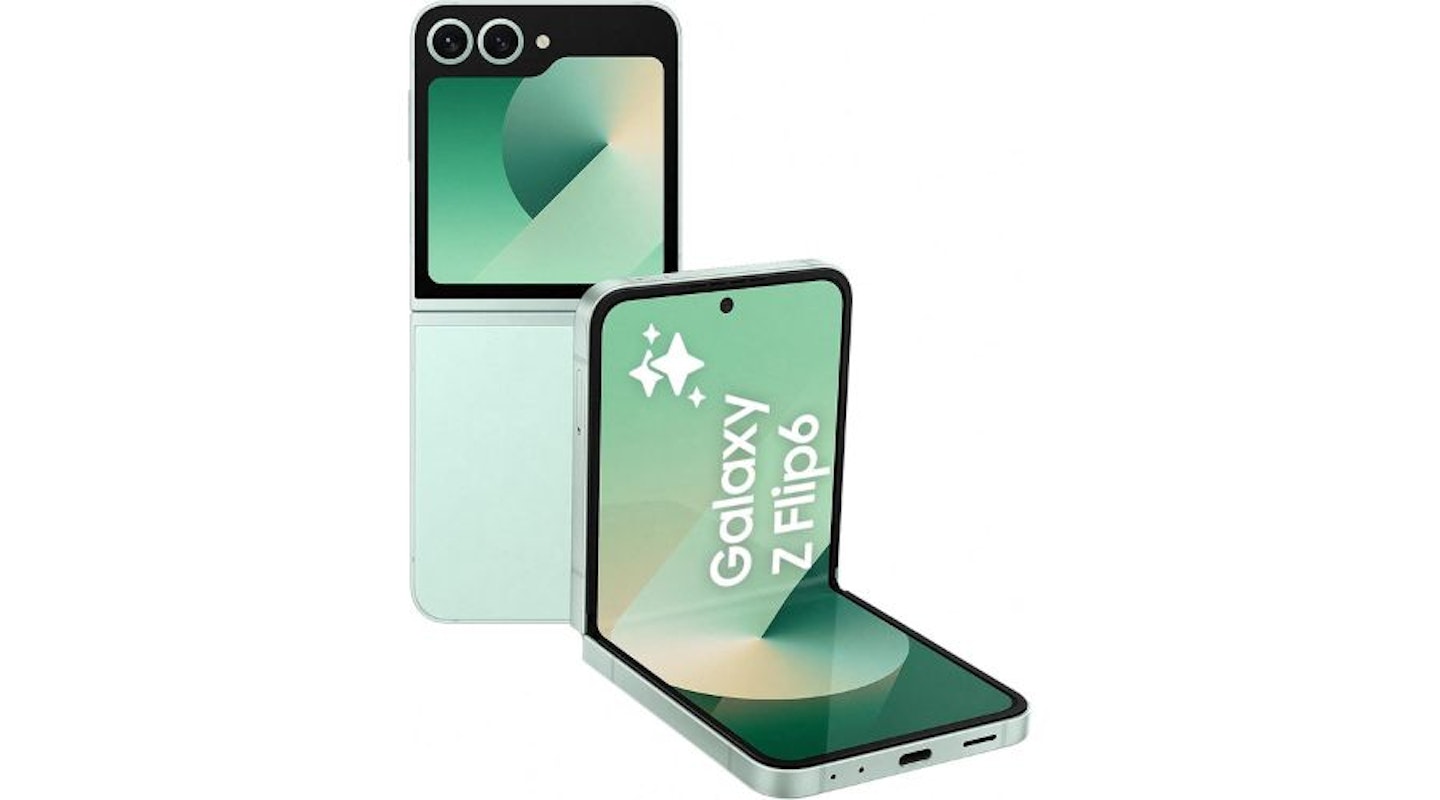 Samsung
SamsungIf you want a foldable with a slightly less eye-watering price tag, then a flip phone might be the answer. And right now, Samsung's Galaxy Z Flip 6 is our favourite choice for most people. Featuring a durable design and seven years of software support, this is a handset that could last you years and years.
Happily, you aren't just paying for the fact that this phone is foldable. The Z Flip 6 is packed with powerful features. This includes the flagship Snapdragon 8 Gen 3 processor, which is the fastest chipset currently available for Android phones. 12GB of RAM is punchy (though not the best) and 512GB of internal storage gives you plenty of room for saving all your photos. Overall, it performs brilliantly, and better than many conventional flagship handsets.
Speaking of photos, there's a 50MP wide lens, a 12MP ultra-wide, and 10MP selfie camera. This is ok, and for a flip phone, probably about as good as it gets. But again, it can't compete with the best camera phones overall. You'll get decent photos with this, but if you're hoping to match the best phones on the market, you may be disappointed.
That aside, this is a flagship flip phone that currently stands out from the competition as the best of its type.
Pros
- Several years of software support
- Larger external screen than before
- Superb performance
Cons
- Battery life still isn't great
| Cameras | 12MP (main), 12MP (ultrawide), 10MP (front) |
| Display | 6.7-inch, 2640 x 1080 pixels AMOLED (main), 3.4-inch, 720 x 748 AMOLED (cover) |
| Processor | Qualcomm Snapdragon 8 Gen 2 |
| RAM | 8GB |
| Storage | 256GB / 512GB |
| Battery | 3,700mAh |
| Dimensions | 85.1 x 165.1 x 6.9mm (open), 85.1 x 71.9 x 15.1mm (closed |
| Weight | 187 g |
10.
Nothing Phone 2
Best style
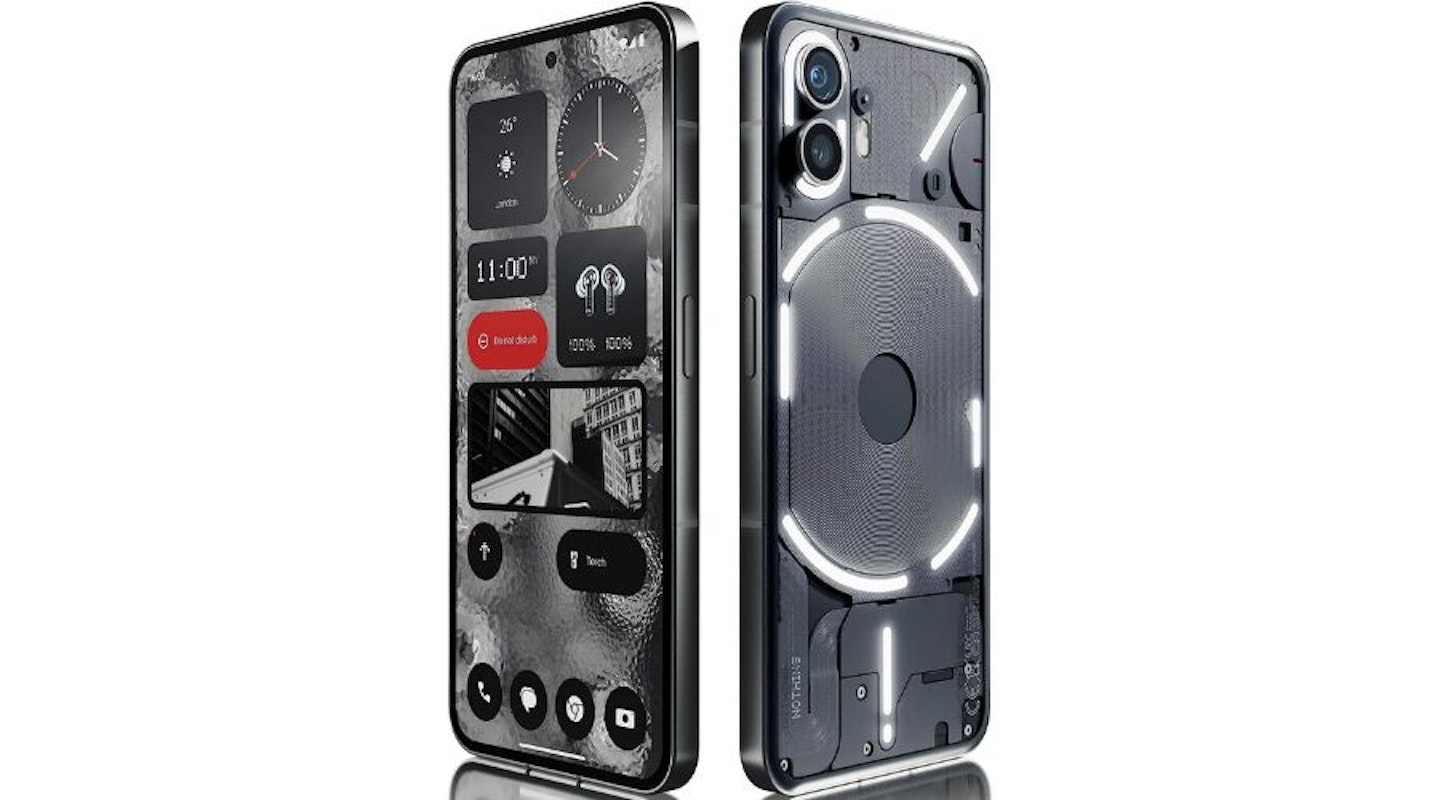 Nothing
NothingNothing has been generating a buzz since the first Nothing Phone launched back in 2022. The Nothing Phone 2 builds on that distinctive styling that will appeal to anyone who values form as well as function.
The LED glyph lights on the rear of the device make the Nothing Phone 2 stand out from its competitors – subtle it is not. But it isn’t just disco lighting - the lights are used to alert you to notifications, phone calls, and provide other functions such as countdown timers.
This phone has a 6.7-inch OLED display, a Snapdragon 8 Plus Gen 1 processor, and 8GB or 12GB of RAM. It also runs Nothing OS 2, which is built on Android 13. Nothing presents apps in black and white, designed to reduce the allure of that screen by removing colour (this is optional). It won’t be for everyone, but it’s a clean and simple interface that some users will love.
Given the RRP of £579, the cameras are a little disappointing – there are better camera phones that will cost less than this one, if that matters to you.
This phone’s design may make it something of a Marmite device – but those who like the design may well love this handset. It’s a great choice for anyone who wants something a bit different and is content with a capable mid-range Android smartphone.
Pros
- Interesting, playful design
- Black and white interface will appeal to many
- Plenty of power
Cons
- Camera is a little disappointing
| Cameras | 50MP (main), 50MP (ultrawide), 32MP (front) |
| Display | 6.7-inch, 2412 x 1080 pixels OLED |
| Processor | Qualcomm Snapdragon 8 Plus Gen 1 |
| RAM | 8GB / 12GB |
| Storage | 128GB / 256GB / 512GB |
| Battery | 4700mAh |
| Dimensions | 161.2 x 76.4 x 8.6 mm |
| Weight | 201.2 g |
How to choose the best Android smartphone for you
Choosing Android over Apple
This long-held debate has wracked the brains of YouTubers and tech enthusiasts alike, and as many have discovered, there's just no definitive answer to this question.
Android phones have a great amount of customisation and user freedom, with great options for some truly in-depth tweaking and more. Apple Phones, on the other hand, generally have a much more seamless user experience, with plenty of Siri integration and some satisfying designed settings interfaces that are easy to use in a pinch.
As for power, however, Android is the uncontested winner – with a much larger range of brands with niche gaming phones and all sorts of technical powerhouses, there are some truly beefy smartphones available, should you want them. For many, the assorted sizes, designs and features on offer, as well as prices, explain why those people prefer Android phones. Not to mention, the androids are on the cutting edge of technology, as it was Samsung who first pioneered the folding smartphone.
Identify your needs and stick to your budget
If there's any device that tempts people to break the bank, it's Android smartphones. Their specs are great, but there's always something slightly better just over the horizon. Whether that's a slightly bigger screen, more memory or larger battery life. But, if you do have a budget in mind, we think it's always best to identify what you need your phone for and stick to it.
If you're an avid gamer, definitely put some of your money into the size and quality of the screen and the processor. Together they'll deliver detailed, slick gaming.
If you're more of a photographer, then, of course, the lenses and megapixel counts will be important - as will the screen technology. We recommend OLED screens for accurate and vibrant colours, as well as screens with high brightness (measured in nits).
For social butterflies and more general use, a balanced set of features that you'll find on the majority of Android Smartphones is best. It's here that you'll find screens of about 5-6-inches and average amounts of storage and processing power. It's enough for light gaming, casual photography, browsing and more.
Software support
Also look into how long the phone will continue to receive software and security updates. The longer this is, the longer your phone can last for, and we’re all in favour of environmentally-friendly smartphones that last as long as possible.
For example, Google promises up to seven years of software support on its latest handsets, while Samsung also promises up to seven years of software updates, (depending on the device).
FAQs
Are Android phones under £200 worth it?
Short answer – absolutely. Yes, they may not have all of the apps and features of a high-end smartphone, but they still offer plenty for their price. Especially now that even some solid hardware is reasonably priced, you can even get 120Hz screens for under £200 – that's definitely worth it to us. Most of the best budget smartphones on the market are Android, which shows they know how to make them cheap and well.
What's the best Android brand?
The ‘best’ Android brand is whichever one will best meet your specific needs. There are plenty of brands which all offer a compelling reason to choose their devices. For incredible photography, it’s hard to look past a Google Pixel phone. For strong all-round performance without spending the maximum, OnePlus is worth considering. And for a cutting-edge user experience, Samsung is consistently excellent.
How we chose these products
We selected our pick of the best Android smartphones based on reliable and trusted brands, average user reviews, price, and suitability for each use case. We look carefully at the technical specifications of all products before we recommend them to ensure that they will meet buyers' needs without requiring modifications or costly additions to function as intended. Our writers also choose products based on hands-on experience where we own or have reviewed them ourselves. Retailers are selected based on price, availability and reputation as a reliable and trusted seller.
Why should you trust us?
At What's The Best, our mission is to provide accurate and reliable reviews, ensuring our readers receive honest and transparent information about the best technology products available. Anything less would undermine our commitment to being a trusted source of unbiased product information.
Our dedicated in-house writing team comprises experts with extensive experience and a genuine passion for technology. Collectively, we have spent decades testing and writing about tech, leveraging our expertise in all our articles, advice pieces and reviews.
We maintain complete editorial independence and do not accept payment for product reviews. Our writers have full control over their content, ensuring that products are selected based solely on the needs of our readers. While we may earn commissions or other compensation from links on our website, this never affects our product choices. These links enable us to continue offering valuable consumer advice, without compromising the integrity of our reviews.
Steven Shaw is a Senior Tech Writer and Reviewer for What’s the Best. He’s an experienced bargain-hunter – finding genuine deals on electronic and audiovisual tech from the best brands. Steven writes how-to guides, explainers, reviews and best-of listicles covering a wide range of topics. He has several years of experience writing about fitness tech, mobile phones, and gaming.
When Steven isn’t writing, he’s probably testing a new smartwatch or fitness tracker, putting it through its paces with a variety of strength training, HIIT, or yoga. He also loves putting on a podcast and going for a long walk.
Subscribe to the What’s The Best Newsletter to keep up to date with more of the latest reviews and recommendations from the What’s The Best team.


